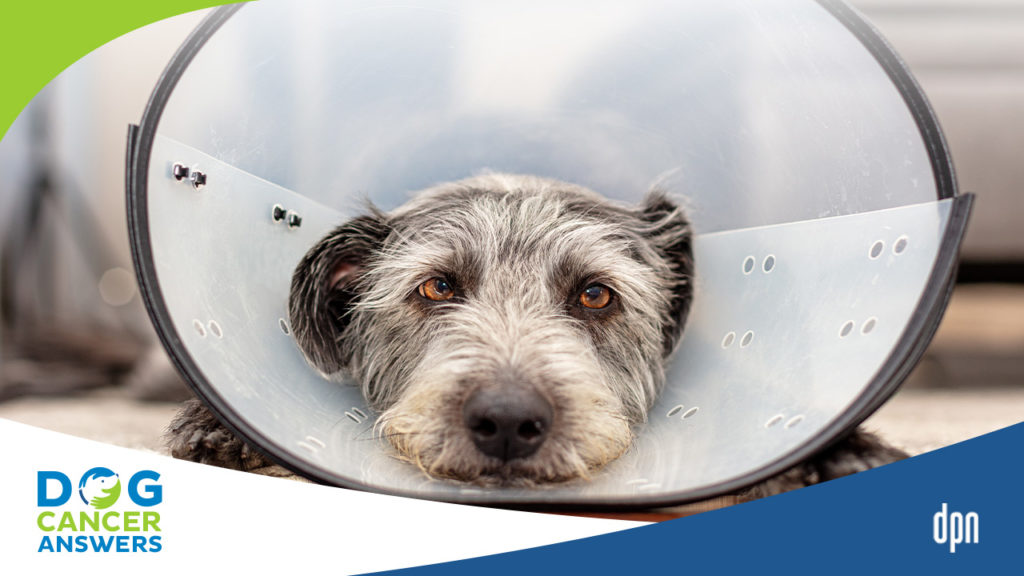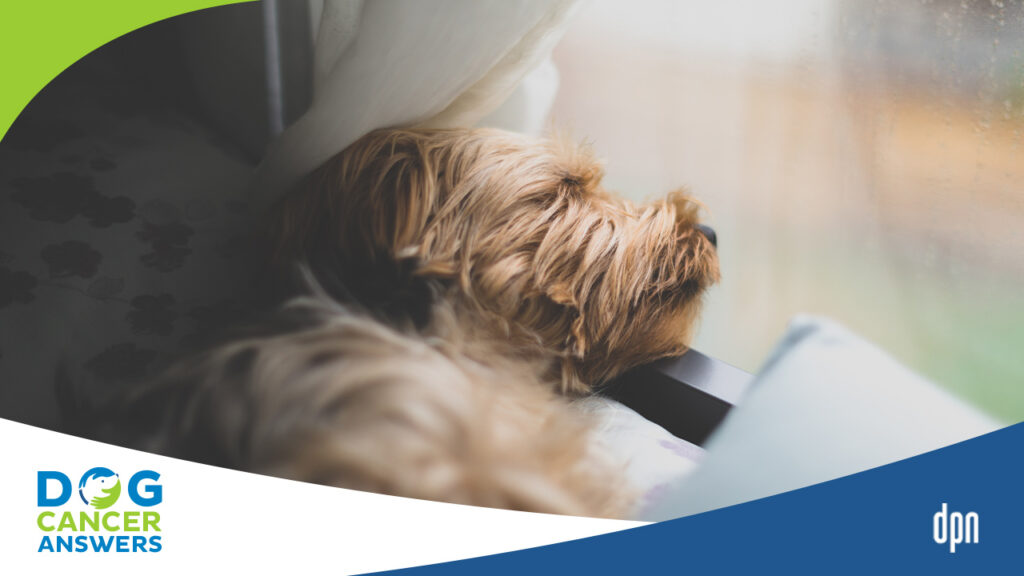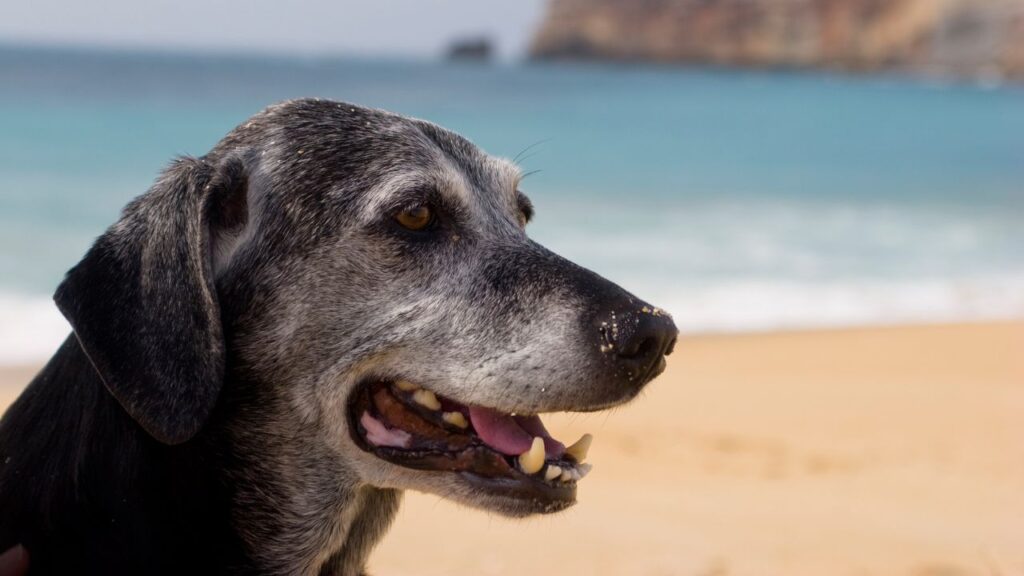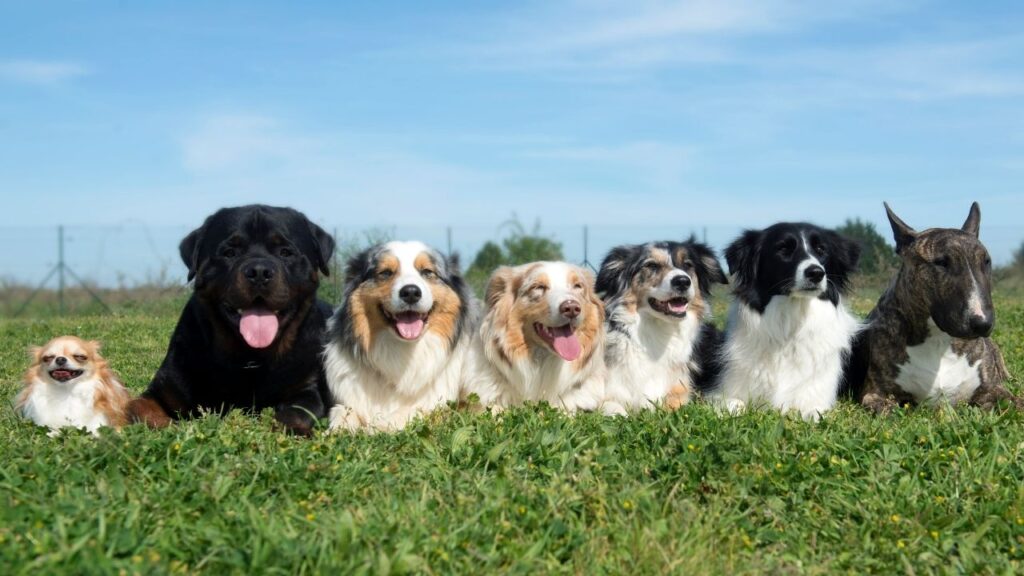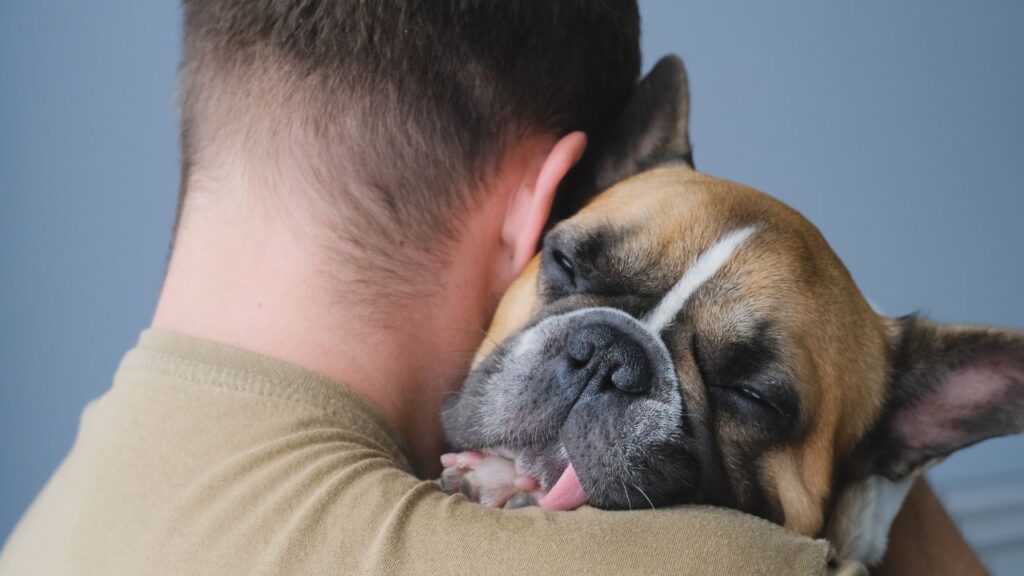There is no way to avoid the grief that comes with the loss of a pet but there are ways to cope and better understand your emotional response. Simply understanding the dog cancer grief process and knowing you are not alone can lessen the load.
Key Takeaways
- Many people are hit with what’s called anticipatory grief immediately upon hearing their dog has cancer.
- Coping with this grief is very hard, but there are ways to help yourself grieve while also learning about your dog’s cancer diagnosis.
- Grief doesn’t always involve crying or feeling sad. Some people feel intense irritability, concern, and anxiety. Grief looks different for everyone.
- Understanding how grief shows up can help you understand yourself and know what kind of help you need.
- Dogs live in the moment, so having cancer does not mean they feel bad. They feel bad if they feel sick, but it’s not necessarily the emotional pain we feel thinking about them having cancer.
- Dogs may know when they are approaching the end of their life, whether it is from cancer or from some other cause. However, that does not mean they dread dying the way we do.
- Dogs can live with cancer for some time. Focusing on being present with your dog no matter how much time you have left together helps both of you cope.
Dog Cancer Triggers Anticipatory Grief
Anticipatory grief may be the first strong emotion of dog cancer grief you will experience. It starts once you know that your pet has a terminal diagnosis. The final loss of your dog will feel overwhelming. If feels like your dog is about to die any moment, even though it hasn’t occurred yet.
Anticipatory grief is normal, and you need to know that. This is a normal part of the process of losing a pet to cancer, whether anyone talks to you about it or not.
Anticipatory grief is often mixed with anxiety, concern, and sometimes irritability. Preparing for what the end may look like is difficult, and you may experience a variety of emotions.
What To Do About Anticipatory Grief
If you are in the grips of anticipatory grief, there are some things you can do to ease it.
Be Present to Your Dog
Remember that your dog is still here now. The worst hasn’t happened yet, and you do not know precisely when it will. There is no such thing as an expiration date for your dog.
Focus on Life Quality
Focus on your pet’s quality of life and enjoy small victories like a nice walk in the woods with your dog or watching your dog enjoy a special treat. This helps you remember that your dog is very much alive.
Get Support
It is important to reach out to loved ones and others in your support network during this time. This will allow you to know you are not alone and prepare your chosen community to be there for you after your pet has passed.
Five Stages of (Dog Cancer) Grief
The official five stages of grief were first published in the 1960s by psychiatrist Elisabeth Kubler-Ross. They were developed after investigating the cycle of grief that people who have terminal illness experience. They have since been used to help people understand their emotional response to loss. All of these stages certainly apply to dog cancer grief.
As more work has been done to understand grief, it has become clear that no person experiences grief the same way.
The stages are not always linear, and you may not experience all of them, or you may go back and forth between them. Give yourself grace during this time, and know that it is okay if you process your grief differently from how other family members do. Nonetheless, it can be helpful to have some awareness of the stages to help you navigate loss.
The stages are listed below, but remember that they can come in any order.
Denial
This is generally early on in the process. You may not want to face the truth that your dog has been diagnosed with cancer. You may seek a second opinion not because you want more information but because you think the veterinarian must have made a mistake in the diagnosis. Emotionally, you may feel nothing (numb), fearful, or shocked.
Anger
During this stage you may feel upset, anxious, and angry that your dog is sick. Feelings of unfairness and frustration with uncertainty may be present. You may feel cynical, thinking thoughts like “every dog gets cancer.” You may feel angry at your veterinarian for the diagnosis or for the way you perceive them handling it.
Bargaining
This stage involves trying to reason with the unreasonable. There may be attempts to find a meaning in the loss of your beloved pet. One particularly common part of this stage is ruminating on things you could have done differently to prevent the loss.
Depression
This stage is when you give in to the deep sadness of the loss of your pet. You may have reduced energy or spend a lot of time crying or nursing your emotional wounds on the couch.
Acceptance
This stage is when you accept the truth. Your dog is gone, and life must go on without them. You may start to put away items you had not felt ready to yet, like their food bowl or leash.
Feeling All the Feelings Is Normal
Remember, these feelings are intense, but NORMAL. It’s also normal to bounce around between them and experience stages more than once.
For example, acceptance may come and go. There may come a time years later when a memory is triggered, and the tears flow again.
Loss and love are part of the human experience of owning a dog.
Grief is a complicated process that does not have a finite start, middle, or end.
Do Dogs Feel Grief Over Cancer?
We will never know for sure exactly how dogs feel, of course. We do know that they do not seem to experience grief over their cancer treatments and diagnosis the way we do.
Dogs live in the moment. If they feel good in this moment, they feel good, and do not dwell on when they felt bad. They do not live with constant fear over things like cancer.
They also do not seem to think much about or try to predict the future. If they are being treated for cancer, they do not think “oh, no, this cancer will kill me someday.”
Animals seem to know when they are close to death naturally, but that doesn’t mean they dread dying like humans do.
Try to Live in the Now
Because every cancer case is different, and dogs do not have a “set time” to die based on their illness, it is hard to know exactly how much time you have with a dog with cancer.
If you focus on being with your dog and try to set aside thinking about the median survival time you heard when you got the diagnosis, your dog will feel better.
After all, our dogs pick up on our emotions, so if you are grieving, your dog may also grieve. But your dog will be grieving for you, not because of their cancer diagnosis.
The signs of dying vary widely depending upon your dog's illness. But there are two signs that Dr. Dressler always sees when a dog is near death. A very special episode of DOG CANCER ANSWERS.
How to Cope with Grief
First, give yourself the room to experience your feelings. If you push dog cancer grief away, it will only come back with more power. It is normal to have a very emotional reaction to the loss of a pet.
It’s also important to know that grieving may look different for everyone. While one person might cry for days, another might barely shed a tear. One person might find refuge in work, and another might have to stay home for a while. There is no “right way” to grieve.
In moments of intense emotions, practice deep breathing or meditation to help calm your nervous system. There are many different coping strategies, and you can try ones that resonate with you. For example, you may want to take some time to make a scrapbook for your dog to help create closure while enjoying memories.
Reach out to your friends and family who understand during this trying time, and consider joining cancer support groups online.
If at any time you feel stuck in a dark emotional place for too long or are really struggling, please seek professional help. There are counseling and support groups for just this reason. You are not alone, and the dog you are grieving would want you to do whatever you need to in order to take care of yourself.
Topics
Did You Find This Helpful? Share It with Your Pack!
Use the buttons to share what you learned on social media, download a PDF, print this out, or email it to your veterinarian.

